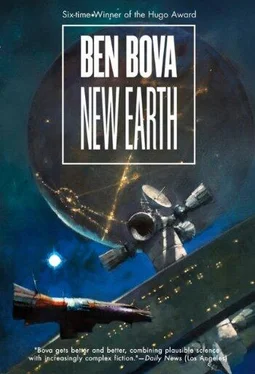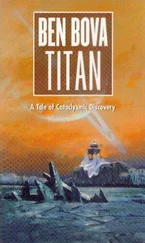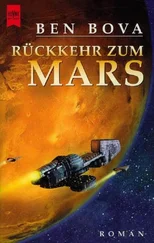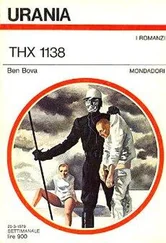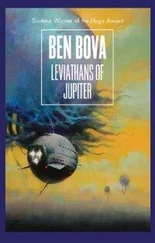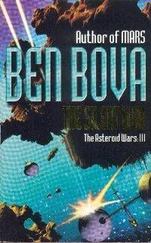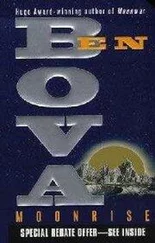Ben Bova - New Earth
Здесь есть возможность читать онлайн «Ben Bova - New Earth» весь текст электронной книги совершенно бесплатно (целиком полную версию без сокращений). В некоторых случаях можно слушать аудио, скачать через торрент в формате fb2 и присутствует краткое содержание. Год выпуска: 0101, ISBN: 0101, Издательство: Tor, Жанр: Космическая фантастика, на английском языке. Описание произведения, (предисловие) а так же отзывы посетителей доступны на портале библиотеки ЛибКат.
- Название:New Earth
- Автор:
- Издательство:Tor
- Жанр:
- Год:0101
- ISBN:978-0-765-33018-5
- Рейтинг книги:5 / 5. Голосов: 1
-
Избранное:Добавить в избранное
- Отзывы:
-
Ваша оценка:
- 100
- 1
- 2
- 3
- 4
- 5
New Earth: краткое содержание, описание и аннотация
Предлагаем к чтению аннотацию, описание, краткое содержание или предисловие (зависит от того, что написал сам автор книги «New Earth»). Если вы не нашли необходимую информацию о книге — напишите в комментариях, мы постараемся отыскать её.
New Earth — читать онлайн бесплатно полную книгу (весь текст) целиком
Ниже представлен текст книги, разбитый по страницам. Система сохранения места последней прочитанной страницы, позволяет с удобством читать онлайн бесплатно книгу «New Earth», без необходимости каждый раз заново искать на чём Вы остановились. Поставьте закладку, и сможете в любой момент перейти на страницу, на которой закончили чтение.
Интервал:
Закладка:
“This is a fundamental problem of science, isn’t it?” Jordan asked. “How do we know that what our human senses are telling us is real, or if we’re fooling ourselves?”
“You test the information,” Brandon answered. “All knowledge is testable. What you can’t test is nothing more than belief, opinion.”
“How do we test the information that Adri’s astronomers have given Elyse?”
“I’ve gone over it as carefully as I can,” Elyse said, looking up at Jordan. “I’m convinced it’s real.”
“But you’re not one hundred percent certain, are you?” Meek challenged.
Before Jordan could say anything, Brandon replied, “Harmon, nothing is one hundred percent certain. Newton gave us a scientific worldview that held up for damned near three hundred years. Then Einstein came along and showed there was more to it. And string theory eventually enlarged on Einstein’s work. Nothing is one hundred percent certain. Not forever.”
Meek started to reply, but Brandon overrode him. “In your own field, Harmon, in astrobiology it’s happened. The field exploded in the late twentieth century with the discovery of extremophiles, didn’t it? When Tommy Gold proposed a deep, hot biosphere of bacteria living miles underground, the biologists laughed at him, didn’t they?”
“But evidence proved he was right,” Meek admitted. “Eventually.”
“Nothing is one hundred percent certain,” Brandon repeated. “It can’t be. You never have the ultimate truth. There’s always more to be learned.”
“So what do we do?” de Falla asked.
Without hesitation, Brandon said, “We act on the information we have. We message Earth all the information we’ve discovered here, and warn them about the gamma burst. We keep on working with Adri’s people and plan out how we can help Earth and the other worlds that are in danger.”
Thornberry piped up. “We can build energy shields that’ll protect Earth from the gamma burst, b’god.”
“Right,” said Brandon. “That’s what we’ve got to do. Who says no to that?”
No one stirred, not even Meek. No one lifted a hand in objection or raised a voice.
Jordan, still on his feet, looked down at Brandon. You took charge at last, he said silently. You’ve become a man, baby brother.
But then he looked across the table at Harmon Meek, who was sitting rigidly, his long face crumbling into a mask of despair.
EXOPLANET
Quoth the raven, “Nevermore.”
Homeworld
Two thousand light-years closer to the core of the Milky Way galaxy than Earth, a small, rocky planet orbited tightly around a tiny, faint red dwarf star. The planet hugged its parent star so closely that its year was only five Earth-days long. Its locked rotation kept one side always facing the meager warmth of its dim parent star, one side perpetually dark and cold.
The star was one of the galaxy’s most commonplace, faint and cool, but destined to continue shining feebly long after giant bright beacons such as Sirius had depleted their nuclear energy sources and destroyed themselves in titanic explosions.
The planet orbiting it was a world of stark contrasts: jagged cliffs and harsh deserts surrounding seething purple seas that crashed against the rugged cliffs and sent huge waves of violent surf surging across beaches of ruby-red sand.
Those seas teemed with life. And living creatures inhabited those deserts, carved homes for themselves in those cliffs, soared across the brooding scarlet skies.
One species of life on that planet was intelligent. Part animal, part plant, they called themselves The People and called their planet Home.
A brood of them was flying across the rocky desert, gliding on the tidal wind that blew unfailingly across their world, high above the rugged cliffs, their backs to the red sun that filled half their sky. They were long, thin, ethereal creatures, gliding on wide gossamer wings that drank in the feeble sunlight, searching for one of their family who had wandered far from their usual haunts.
Across the barren landscape they soared, incomplete as long as one of them was missing. They headed away from their sun, toward the distant shadowed land that bordered the half of their world that was always in darkness.
“This is foolishness,” grumbled one of them. “The farther from the sun we fly, the weaker we become.”
“It’s cold here,” complained another. “How can we bud in such a wasteland?”
“We cannot bud until we are complete,” said their leader, the oldest among them. “We must find Phen-he. Then we can return to the warmth and begin to bud.”
One of the others complained, “Phen-he has always been strange, a loner. It would be better to bud without Phen-he, leave the strange one in solitude.”
“That is not our way,” said the leader, sternly. “We must have unity before we can bud.”
“I see Phen-he!” cried their youngest, flying some distance ahead of the others. It extruded an arm from its malleable body, pointing.
And there was Phen-he, a thin filmy reed standing with wings folded about its body on an outcropping of rock, roots wormed into the thin layer of nourishing soil, swaying gently in the tidal breeze, head turned toward the darkest part of the sky.
The others fluttered about Phen-he and, one by one, landed around it. Their roots found precious little nutrition in the meager soil that coated the underlying rock.
“What are you doing here, Phen-he?” demanded the eldest. “Don’t you realize you are required for the budding?”
Phen-he turned toward the eldest, its heat-sensitive eyeplates so enlarged they covered most of its upper body. Extruding an arm, it pointed into the dark sky.
“Look,” it said.
The others stared into the darkness. As their eyeplates adapted and grew, they saw that the inky sky was peppered with specks of light.
“What are they?” asked one of the brood.
“I don’t know,” said Phen-he. “I first saw them many cycles ago, when I was blown to the dark side by a storm.”
“Lights in the sky?” wondered another. “What does it mean?”
“They exist only on the dark side of Home,” said Phen-he. Then it added, “Or perhaps they are too faint to be seen where the sun fills the sky.”
“They are meaningless,” decided the eldest. “Come, Phen-he, you are needed for the budding.”
“But they are so beautiful—”
“You are needed. You must come.”
Reluctantly, Phen-he bowed and stretched its wings wide. The entire brood disengaged from the soil and took flight.
Phen-he turned its head for one final look at the flecks of light. Its breath caught in its throat.
The sky was becoming brighter. The darkness was changing into light. Hard, fierce light, so brilliant it hurt its eyeplates. Phen-he turned away from the growing light but it was no use. The entire sky was ablaze. It saw the eldest’s wings crumple and it plunged to the ground, smoking and shrieking. All the others screamed and died, falling like burning leaves. Phen-he felt itself burning, roasting as the sky blazed furiously and even the soil below and the rocks themselves began to smolder.
Everyone died. The People were no more. The planet they called Home was reduced to a smoking ruin of rubble-strewn bare rock.
Surging past at the speed of light, the gamma burst enveloped everything and then sped onward, outward, spreading death wherever it touched.
CRUSADERS
Far and away the best prize that life has to offer is the chance to work hard at work worth doing.
THEODORE ROOSEVELTBase Camp
Интервал:
Закладка:
Похожие книги на «New Earth»
Представляем Вашему вниманию похожие книги на «New Earth» списком для выбора. Мы отобрали схожую по названию и смыслу литературу в надежде предоставить читателям больше вариантов отыскать новые, интересные, ещё непрочитанные произведения.
Обсуждение, отзывы о книге «New Earth» и просто собственные мнения читателей. Оставьте ваши комментарии, напишите, что Вы думаете о произведении, его смысле или главных героях. Укажите что конкретно понравилось, а что нет, и почему Вы так считаете.
